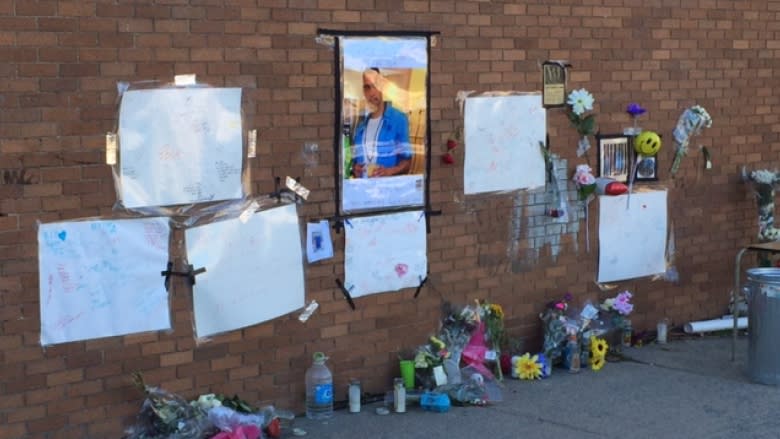Shooting deaths, violent acts have systemic causes, says Halifax pastor
A pastor and a professor both shared their shock and surprise at the news of three murders in the Halifax area over the past week.
All three victims — Tyler Richards, Naricho Clayton and Daverico Downey — died from gunshot wounds, were under 30 and were African Nova Scotian men.
"Violent crime has been declining in Halifax for the last few years at quite a precipitous rate — one of the fastest rates throughout the country," said Stephen Schneider, an associate professor of sociology and criminology at Saint Mary's University.
Reverend Rhonda Britton, the pastor at Cornwallis Street Baptist Church said she's "stunned" by the violence.
"We had thought that we were experiencing a time when violence was decreasing and I'm not sure what made this erupt," Britton said.
"But it is a time when we need to come together to try to work harder towards solutions to keep this kind of thing from happening."
RCMP Superintendent Dennis Daley told CBC News on Monday investigators don't believe at this time Downey's death is connected with the shootings of Richards or Clayton.
"I still believe the Halifax Regional Municipality is an extremely safe city. We have dedicated extra resources," Daley said.
Focusing on youth
Schneider, who also wrote the chapter on young offenders in the city's most recent roundtable review on violent crime, said a disproportionate number of young men contribute to an "overwhelming amount" of crime and violence in the city.
"And that's never going to change, regardless of how fast the crime rate goes up or down," he said. "We really need to focus on those youth who are most at risk at getting involved in the subculture of violence in HRM."
Britton, who's also the chair of the Save our Sons, Save our Sisters Coalition and the community chair of CeaseFire Halifax, said she met the first victim, Tyler Richards, a few years ago.
"He was a very personable young man — on the right track in life with his basketball career. I'm not sure where that got off-track."
'Systematic causes'
Both Britton and Schneider said the reasons people turn to crime are multi-layered.
"There are systemic causes to all of this violence," Britton said, pointing to education.
"When I talk about mis-education it's that we have systems in place that people don't necessarily learn how to navigate through our educational system in our schools and so they are not prepared for life."
Britton said some young people don't have a government-issued identification card — a barrier to a successful job search. Poverty also plays a role.
"All of this leads to feelings of despair in many cases because they've had bad experiences in school or in society as people who have been marginalized or people who have been discriminated against. It leads to a lack of self-worth — a devaluing of self and others," she said.
Economic, social and emotional factors
"You can't put your finger on one thing. But all of these things come together — they converge together to create this sense of hopeless and despairing and in many cases frustration in trying to get ahead in life," Schneider said.
"We're also dealing with institutionalized racism in this province that has been dissipated somewhat, but it's still there and when I did my research for the roundtable. Itt kept coming back time and time again to the lack of educational opportunities for young African Nova Scotian men and the job opportunities in the private sector for young African Nova Scotian men."
Schneider said he's convinced that the programs, such as CeaseFire Halifax and Save our Sons, Save our Sisters, have made a difference.
"The problem still is that we have far too many children and young people who are falling through the cracks," said Schneider.
"The gold standard — what's really going to work — is prevention at a very young age. Work with single, at-risk moms. Work with kids when they show signs of fetal alcohol syndrome or aggressive behaviour. You have to start young."


